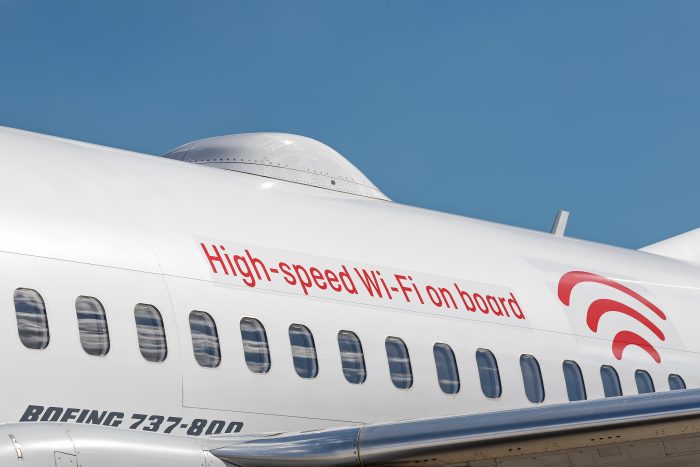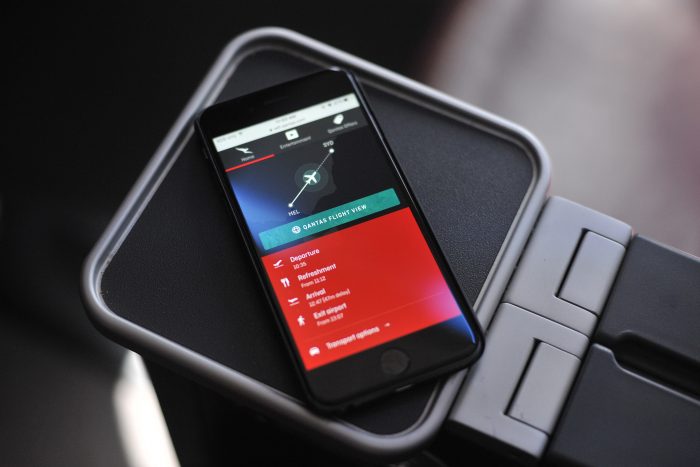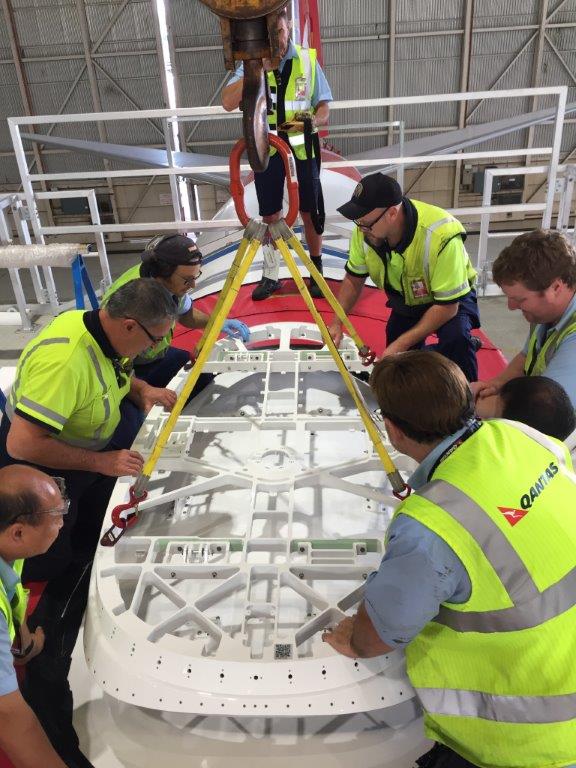
Look out for the bump: More than 40,000 people have connected to Wi-Fi in the sky since April
Since April, our first internet-enabled aircraft has let passengers stay connected as it flies up and down the east coast of Australia.
The free and fast Wi-Fi has been a nice surprise for up to 3,500 passengers a week who happen to step on board VH-XZB on their way somewhere.
Their experience has also given our team working to rollout Wi-Fi to the rest of our domestic fleet a lot of useful information about how the system is performing.
That’s important, because in choosing a Wi-Fi system (and there are several to choose from), Qantas selected ViaSat’s Ka-band satellite system so we could tap into the wide coverage and high speeds of the nbn. And because it’s quite new, there is a lot of testing involved to make sure we get it right.
The verdict to date – so far, so good
- An average of 32% of passengers are choosing to log-on at some stage in the flight. This is a lot higher than the 5% take up we saw when we trialled (older, slower, paid) Wi-Fi on the A380 in 2012. The industry standard is less than 10%, but we are expecting somewhere between 30-50% because we’re offering the service on our domestic B737s and A330s for free.
- Fine tuning has seen reliability improve to above 98%, meaning we’re seeing fewer dropouts as the aircraft flies at 850kmph across different satellite beams.
- Download speeds now are routinely above 12 megabits per second, which has edged higher as the trial continues.
- Overall customer satisfaction has been positive, with the latest survey figures showing 88% of customers gave their Wi-Fi experience the thumbs up. We hope to increase this as we keep making tweaks to the system.

Up in the air you can: Netflix and…check your email
Most popular uses
More than 60% of passengers connected to Wi-Fi are using one or more services/apps and visiting multiple websites.
Just like mobile users on the ground, passengers are spending the most time using email and browsing the web, in particular news sites. This is followed by social media (Facebook is the most popular social media application), streaming video and music services (Stan, Netflix, Spotify), along with messaging services (like WhatsApp) and on-line shopping.

All hands on deck: It takes our engineers around one week to install and test the new hardware
Aircraft #2 fitted out
A second B737 (VH-XZC) has now been fitted with the latest ViaSat equipment. Up to eight more will be fitted out between now and late September, when we expect to move from the trial phase to a broader rollout.
The Wi-Fi on these aircraft won’t be switched on for customers before then, because we’re rolling out the latest technology and it must undergo testing. This new technology will offer faster speeds and improved reliability.
By the time our domestic B737s and A330s are all fitted in late 2018 – around 80 aircraft in total – an estimated 15 million passengers a year will be able to stay connected in the air. That’s a whole lotta emails, selfies and streaming.